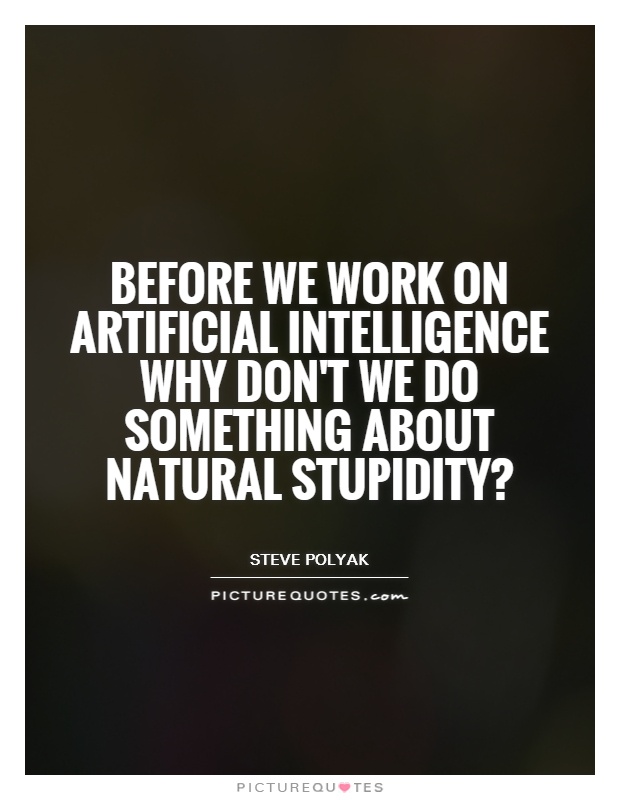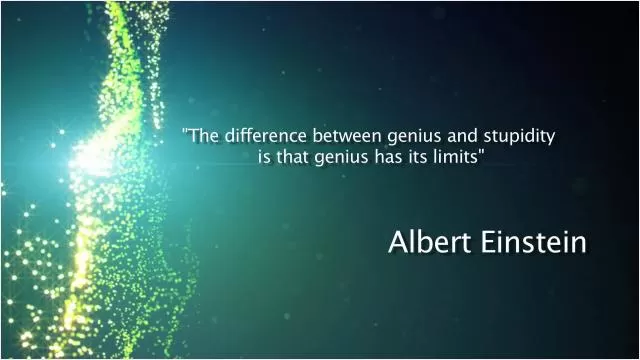Before we work on artificial intelligence why don't we do something about natural stupidity?

Before we work on artificial intelligence why don't we do something about natural stupidity?
Steve Polyak, a renowned expert in the field of artificial intelligence, has often been quoted as saying, “Before we work on artificial intelligence, why don't we do something about natural stupidity?” This statement encapsulates a sentiment that many in the tech industry share – that perhaps our focus should be on addressing human shortcomings before delving into the complexities of creating intelligent machines.Polyak’s words highlight a fundamental truth about the human condition – that we are often our own worst enemies when it comes to making rational decisions and solving problems. Natural stupidity, or the tendency to make irrational choices or act impulsively, can hinder progress in all areas of life, including the development of artificial intelligence.
In the context of artificial intelligence, natural stupidity can manifest in a number of ways. For example, biases and prejudices that are inherent in human decision-making can be inadvertently transferred to AI systems, leading to discriminatory outcomes. Additionally, human error in programming or data collection can result in flawed algorithms that produce inaccurate or harmful results.
By addressing natural stupidity, we can improve the quality of our decision-making processes and reduce the likelihood of errors in the development and implementation of AI systems. This can be achieved through education and training programs that promote critical thinking, problem-solving skills, and ethical decision-making. It can also involve creating systems and processes that minimize the impact of human error on AI technologies.
Polyak’s statement also raises important questions about the ethical implications of artificial intelligence. If we are unable to address our own shortcomings, how can we ensure that AI systems are developed and used in a responsible and ethical manner? By focusing on improving our own decision-making abilities, we can create a foundation of trust and accountability that is essential for the responsible development and deployment of AI technologies.












 Friendship Quotes
Friendship Quotes Love Quotes
Love Quotes Life Quotes
Life Quotes Funny Quotes
Funny Quotes Motivational Quotes
Motivational Quotes Inspirational Quotes
Inspirational Quotes